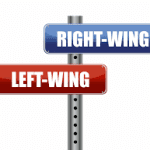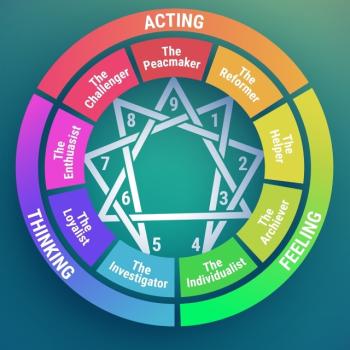Is Paradox Something Good in Christian Doctrine?
A friend recently forwarded to me a sermon series announcement. It is about a planned series of sermons by his pastor. The church is a mainline Protestant congregation, the largest congregation in the state, and is quite evangelical and even quasi-charismatic (in style of worship). The “paradoxes” the pastor plans to preach about—as paradoxes—are, among others, the Trinity and the Person of Jesus Christ (his humanity and divinity) and “predestination and free will.” My friend wanted my opinion about this announcement and planned series.
Of course I cannot critique the sermons; they haven’t even been preached yet! I am only using my friend’s question as an opportunity to write here about one of my favorite theological subjects. That is whether or not “paradoxes” in Christian doctrine and theology are something to celebrate (as it seems the sermons will suggest).
*Sidebar: The opinions expressed here are my own (or those of the guest writer); I do not speak for any other person, group or organization; nor do I imply that the opinions expressed here reflect those of any other person, group or organization unless I say so specifically. Before commenting read the entire post and the “Note to commenters” at its end.*
What is a paradox? Well, of course, there are dictionary definitions but I am going to bypass them here and state my own understanding of paradox. (Ordinary dictionaries often do not work for philosophical and theological ideas. There are numerous specialized dictionaries for philosophy and theology.) A paradox is two ideas that are both said to be true but that seem to contradict each other. The key term is “seem.” Obviously, if a paradox were a sheer logical contradiction we would not need the word “paradox.”
Yet many people do use “paradox” when they mean “contradiction.” I insist on distinguishing them. A real logical contradiction is impossible. Two truths that absolutely logically contradict each other cannot both be true. And I have gone further here, in the past, to argue that a person cannot believe both truths at the same time if they logically contradict each other.
Here is an example of a sheer, logical contradiction: “That geometrical figure is (not merely includes) both a circle and a square.” That’s impossible unless the person speaking means something unusual by “circle” and/or “square.” As it stands the statement cannot be accepted as true, cannot even be considered to be true, without qualification that ultimately amounts to either “circle” or “square” not meaning what it means in geometry.
Someone might play David Hume and say “Well, that’s in the analytic realm; what about the synthetic realm?” But that would be going too deeply into the “weeds” for this blog. So I will set that aside for my purposes here and leave it as my assertion that no sheer logical contradiction can possibly be true and when one appears it should be brushed aside as obviously false or else clarified and qualified before being considered as possibly true.
So what is the difference between that (viz., a logical contradiction) and a paradox? A paradox is an apparent contradiction but one that is not obviously illogical. It sets forth two ideas as true that stand in tension with each other. On the surface it is not apparent how both can be true, but they do not logically contradict one another.
Typical illustration: the nature of light. Some physicists say that light is both particles and waves (or particle-like and wave-like). It is not apparent how it can be both. Nothing else is both and particles and waves seems to be so different that one thing cannot BE both. And yet, some physicists insist, light manifests as both particles and waves. There is no logical contradiction involved in saying “Light is both particles and waves.” The statement is not at all like “That geometrical figure is (not merely includes) both a circle and a square.” We do not know HOW one thing can be both particular and wave-like, but asserting that one is both does not involve a logical contradiction. It is a paradox.
So, yes, some Christian doctrines are paradoxical. How one being can be both divine and human is unclear to us because we have no knowledge of how that is possible. But being both divine and human is does not involve a logical contradiction UNLESS we add “exclusively” to the description twice. The same is the case with the doctrine of the Trinity. We cannot understand HOW one being can be three persons, but there is no logical contradiction involved in believing that it is so unless we say that “being” and “person” are not distinguishable. But there is no reason to say that.
Now, having said that in defense of Christian orthodoxy, that it NEVER requires belief in ANY logical contradiction, I will go on to say that a paradox is always a task for further thought (Pannenberg).
Let’s take on the hypostatic union (the doctrine that Jesus Christ was and is one person both human and divine). Left alone without qualification and clarification it does jar the mind. The rational mind seeks clarity. Is it possible to relieve the paradox somewhat? If so, why not try? If successful, the benefit would be to move further away from any suspicion that the doctrine is incoherent, self-contradictory.
In my opinion, “kenotic Christology” is the way to relieve the paradox somewhat. I do not claim that no mystery remains but only that the appearance of contradiction is removed—at least partially (and wholly for me). The eternal Son of God, equal with the Father, voluntarily “laid aside” his exercise of attributes of divine glory that conflict with growing in stature, wisdom and favor with God in order to go through a normal (though not sinful) human development. An analogy, though flawed (like all analogies), can help. I have used it numerous times with students and most seem to find it helpful. When I go to sleep voluntarily (as is usually the case) I am still me but in an altered state of consciousness. In fact, some of the time while asleep, I am also physically paralyzed. I lose all powers except subconscious ones. And yet I am no less me. How did Jesus do his miracles? According to Luke’s gospel through the power of the Holy Spirit.
Does this answer every question? Of course not. It’s only a beginning. Whole books have been written spelling out details of the theory and every such book does so in at least a slightly different way from the others. There is no one, unified “kenotic Christology.” Kenotic Christology is any Christology that denies that Jesus Christ always, from infancy on, had full knowledge and use of his divine powers. The only alternative would be something like a “two minds theory” which I believe does ultimately divide the person in Nestorian-like fashion.
Rather than celebrating paradoxes as good, let us admit them as signs of mystery and work to relieve them using our God-given mental capacities faithfully, respectfully, in the service of explicating divine revelation. The alternative is mental laziness and the inevitable “turning off” of inquiring minds whose faith rightly seeks understanding.
*Note to commenters: This blog is not a discussion board; please respond with a question or comment only to me. If you do not share my evangelical Christian perspective (very broadly defined), feel free to ask a question for clarification, but know that this is not a space for debating incommensurate perspectives/worldviews. In any case, know that there is no guarantee that your question or comment will be posted by the moderator or answered by the writer. If you hope for your question or comment to appear here and be answered or responded to, make sure it is civil, respectful, and “on topic.” Do not comment if you have not read the entire post and do not misrepresent what it says. Keep any comment (including questions) to minimal length; do not post essays, sermons or testimonies here. Do not post links to internet sites here. This is a space for expressions of the blogger’s (or guest writers’) opinions and constructive dialogue among evangelical Christians (very broadly defined).

















